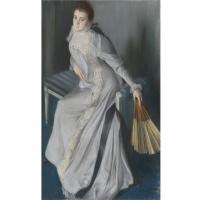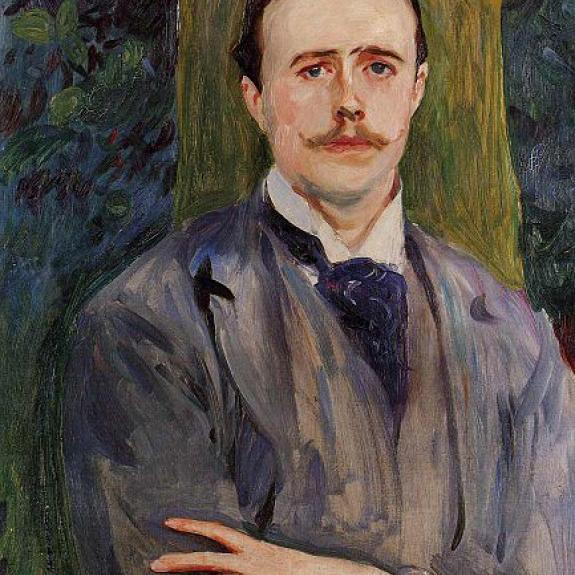Jacques-Émile Blanche
Jacques-Émile Blanche
Jacques-Émile Blanche (1861-1942)
Jacques-Émile Blanche (1 January 1861 – 20 September 1942) was a French artist, largely self-taught, who became a successful portrait painter, working in London and Paris.
Blanche was born in Paris. His father was a successful psychiatrist who ran a fashionable clinic, and he was brought up in the rich Parisian neighborhood of Passy in a house that had belonged to the Princesse de Lamballe.

Although Blanche received some instruction in painting from Henri Gervex, he may be regarded as self-taught. He became a very successful portrait painter, with a style derived from 18th-century English painters such as Thomas Gainsborough as well as Édouard Manet and John Singer Sargent. He worked in London, where he spent time from 1870 on, as well as Paris, where he exhibited at the Salon and the Société Nationale des Beaux-Arts. One of his closest friends was Marcel Proust, who helped edit several of Blanche's publications. He also knew Henry James and is mentioned in Gertrude Stein's The Autobiography of Alice B. Toklas.
In 1902 Jacques-Émile Blanche took over the direction of the Académie de La Palette, where he would remain director until 1911. He taught at the Académie Vitti in 1903.
Among the painter's most famous works are portraits of his father, Marcel Proust (private collection, Paris), the poet Pierre Louÿs, the Thaulow family (Musée d'Orsay, Paris), Aubrey Beardsley (National Portrait Gallery, London), and Yvette Guilbert and the infamous beauty Virginia Oldoini, Countess of Castiglione whom his father had treated for mental illness. Others he painted included James Joyce, Julia Stephen, Edgar Degas, Claude Debussy, Auguste Rodin, Colette, Thomas Hardy, John Singer Sargent, Charles Conder, Percy Grainger, and Tamara Karsavina as Stravinsky's Firebird.
He was the author of the unreliable Portraits of a Lifetime: the late Victorian era: the Edwardian pageant: 1870–1914 (London: J.M. Dent, 1937) and More Portraits of a Lifetime, 1918–1938 (London: J.M. Dent, 1939), about which Walter Sickert said "he is liable to twist things he hears or doesn't into monstrous fibs".



